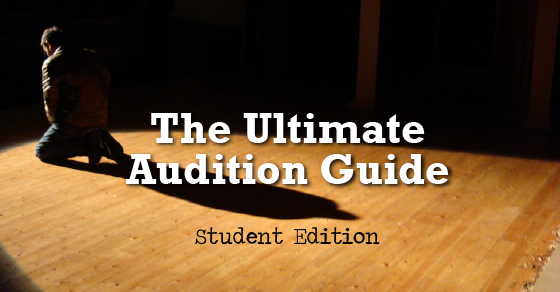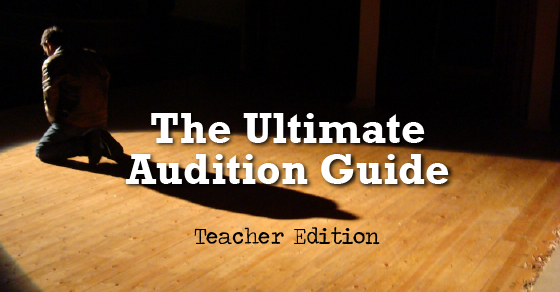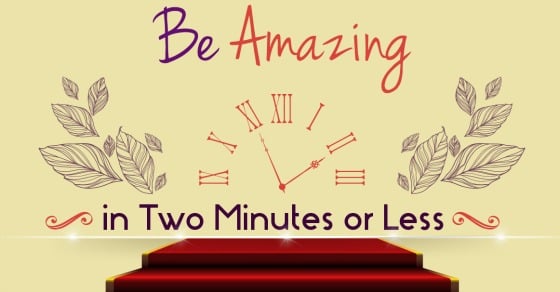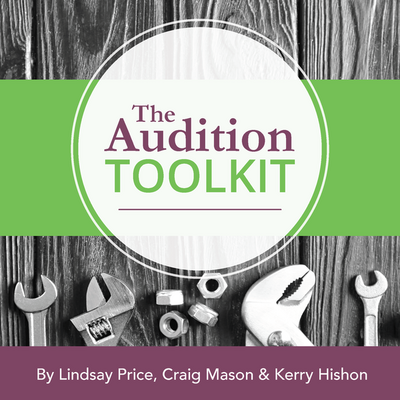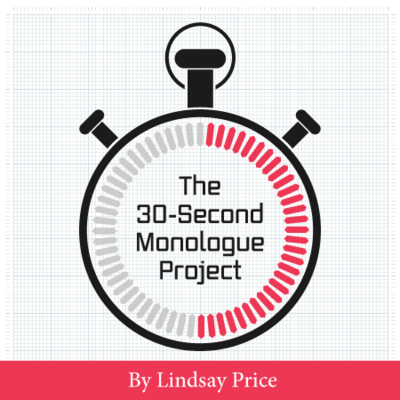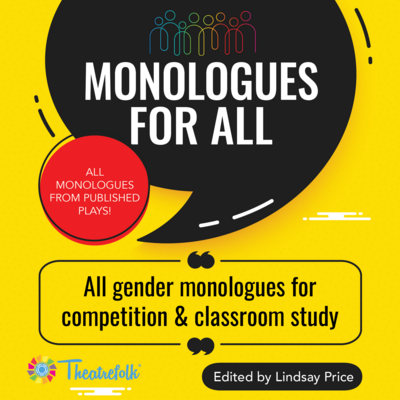Do you have girls who are tired of the same old stereotypes and love something dark and twisted? Camel Dung and Cloves offers rich, eccentric roles with nonstop plot twists that will keep them hooked!
How to Find Monologues for Auditions and Competitions
I never enjoy looking for monologues. It’s sort of like a hunting expedition and I don’t like hunting. And don’t get me started on fishing…
But – big BUT – I love when I actually find a great piece that suits both me and the thing I’m auditioning for. I feel like Livingstone seeing Victoria Falls for the first time.
Here’s some advice on finding the perfect monologue for you.
Monologue Books
Monologue books are a great starting point. Monologues in collections have usually been curated by editors who have gone through dozens and dozens (if not hundreds) of plays to create the collection. And they can be a godsend if you really need something specific in a pinch. But they’re just a tool, not a solution. They’re not the end all and be all.
Lots of people buy monologue books. And it’s very likely that lots of people have the same monologue book that you have. And it’s possible they like the same piece that you do. And I’m not saying that they’re better than you per se, but if they happen to have their audition scheduled before yours, then when you announce what you’re performing there will be a small drop in the room’s barometric pressure as the director thinks to herself, Dang, how many times will I have to watch this same piece today???
But as I say, these books are great starting points. Here’s how to use them…
- Find a piece you like in the book – you identify with a character, the writing appeals to you, etc.
- Buy a copy of that play and read it.
- Look for the monologue from your book. It’s possible that the piece in the book is edited down from a larger monologue. Maybe you can reshape it into a different piece altogether than the one in the book.
- Look for other monologues by the same character. It’s possible they have more than one monologue in the play.
- Look for other monologues in the same play by a different character. Playwrights who write good monologues , ones that aren’t in the monologue book.
- Get other plays by the same author. There are probably well-written monologues in those plays as well.
Visit the Library
Yes, the old-fashioned library. That building with all the books. While a lot of theatrical publishers are starting to put their plays online, there are still thousands of amazing scripts that are only available in book form.
If you’re near a major city, budget a day to spend at their largest library, whichever branch has the best performing arts section.
Just start completely randomly. Grab a couple dozen plays off the shelf and start flipping through them. You’ll begin to get a feel for which playwrights are likely to write monologues that appeal to you, then start focusing on those playwrights.
Editing
Here is the one place in the theatre that I think it’s ok to edit the playwright’s work to suit your needs.
Don’t be shy about cutting together a monologue from a series of smaller speeches.
Don’t be shy about slicing out bits that don’t make sense out of context.
The object of this piece is not a performance. It’s a showcase for you, not the writer. You’re the one auditioning.
When I was auditioning a lot, this is where most of my pieces came from. Since I was the one putting them together, I could be pretty sure that what I was doing was unique.
Consider What You’re Auditioning For
If you’re auditioning for a play, look at pieces by the same author. Or look at pieces in a similar style. Or find out what playwrights inspired that playwright.
If you’re auditioning for a school, look at the plays they’re doing in their season. Again, look at pieces by the same playwrights and in similar genres.
Related Articles
Audition Toolkit
by Lindsay Price, Craig Mason, and Kerry Hishon
Teach students to present their best selves in an audition situation with The Audition Toolkit - complete with articles, exercises, tips and more for both teachers and students.
The 30-Second Monologue Project
by Lindsay Price
Give students the confidence, skills and tools they need to master the monologue with The 30-Second Monologue Project. This four-lesson unit guides students from the first moment to a successful performance.
Monologues for All
by Lindsay Price
Many monologue books have monologues with only male- or female-identified characters. This resource allows students to infer the identity of the character.

